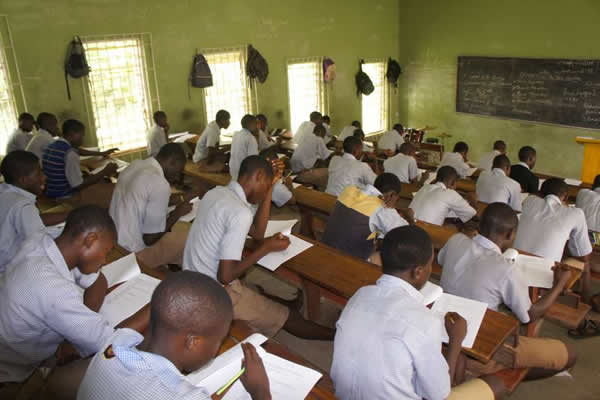Education
Federal Government Unveils Overhauled School Curriculum, Introduces Coding, AI, and Entrepreneurship

In a major stride towards modernizing the nation’s education sector, the Federal Government has officially released a restructured curriculum for both Junior and Senior Secondary Schools, set to take effect from the 2025/2026 academic session.
The announcement was amplified on Wednesday via social media by the Special Assistant to the President on Social Media, Dada Olusegun, who posted what appears to be an official summary of the new subject offerings.
According to the shared document, the revised curriculum introduces compulsory digital literacy and entrepreneurship training at the junior level, while advanced technology courses such as programming, artificial intelligence, and data science will become integral components of senior secondary education.
Highlights of the New Curriculum
The updated framework reflects a shift towards 21st-century learning, with an emphasis on practical skills, critical thinking, and technological innovation.

Junior Secondary School (JSS 1–3):
Students will study foundational subjects including:
- Mathematics & Measurement: Covering geometry, statistics, algebra, and applied measurements.
- English Language: Emphasizing grammar, vocabulary, comprehension, and oral communication.
- Integrated Science: A blend of physics, chemistry, biology, and earth science.
- Digital Literacy & Coding: Training in Microsoft Office, internet research, and basic programming using Python and Scratch.
- Social Studies: Focus on Nigerian history, civic responsibilities, and entrepreneurship basics.
- Languages: Proficiency in local languages and introductory French or Arabic.
- Creative Arts: Visual arts, drama, music, and film appreciation.
- Physical & Health Education: Including reproductive health, drug abuse prevention, and fitness.
Recommended News:
- Gateway International Airport Attains Nigeria’s First Aerodrome Operational Permit
- Dangote Trailer Reportedly Crushes Family to Death in Enugu
- Ogun West Youth Leader Jinad Hammed Decries Marginalization of Young Politicians
Senior Secondary School (SS 1–3):
At this level, the curriculum expands to include:
- Advanced Mathematics: Topics such as calculus, statistics, and financial mathematics.
- English & Communication: Academic writing, public speaking, journalism, and global literature.
- Sciences: In-depth studies in physics, chemistry, biology, and environmental science.
- Technology & Innovation: Programming (Python, JavaScript, HTML/CSS), robotics, artificial intelligence, data science, and cybersecurity.
- Social Sciences: Government, law, economics, philosophy, ethics, and entrepreneurship.
- Languages: Advanced studies in indigenous languages and optional fluency in French, Arabic, or Chinese.
- Creative Arts & Media: Film production, drama, fine arts, and music.
- Physical & Health Education: Leadership development, CPR, mental health, and sports science.
- Research & Project Work: A mandatory capstone project involving data collection, analysis, and presentation.

A Curriculum for the Future
Education stakeholders have welcomed the move as a timely response to the demands of a rapidly evolving global economy. With the inclusion of subjects such as coding, robotics, and digital entrepreneurship, the curriculum aims to equip Nigerian students with the competencies required for the Fourth Industrial Revolution.
While the official version of the curriculum is yet to be signed or stamped by the Ministry of Education, the release signals a bold step towards aligning Nigeria’s education system with global best practices.
As schools prepare for implementation in the coming session, further clarification and training for educators are expected in the months ahead.
[Optional Add-ons for Print/Web Versions]
- Sidebar: “Top 5 New Subjects Every Nigerian Student Will Now Learn”
- Infographic: Timeline of Curriculum Changes (1999–2025)
- Interview: What Teachers Are Saying About the New Curriculum





















